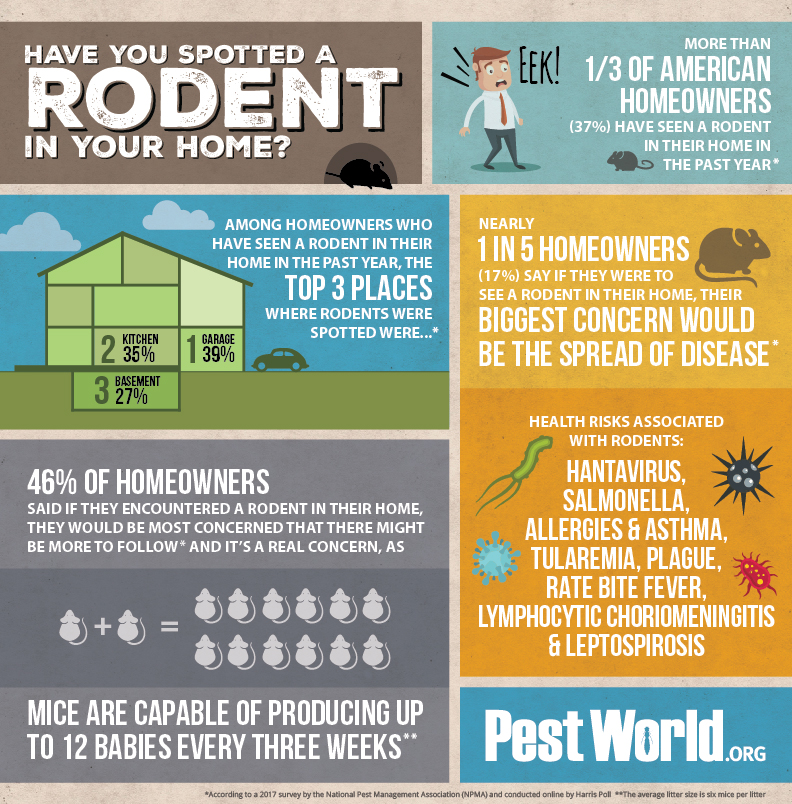Rat Control Understanding The Actions Of Rats
Rat Control Understanding The Actions Of Rats
Blog Article
Material By-Meier Karlsen
Have you ever before questioned why rats appear to be so evasive and tough to control? Recognizing the behavior of rats is vital to successfully managing their populaces.
By obtaining understanding right into their interaction patterns, feeding habits, and nesting and reproducing habits, you can establish techniques that will help you maintain these pesky rodents away.
So, allow's explore the fascinating globe of rat habits and uncover exactly how this knowledge can empower you in the fight versus these undesirable home guests.
Communication Patterns
To recognize rat actions, it is essential to examine their interaction patterns. Rats are very social creatures and count on communication to survive and flourish in their setting. They use various kinds of interaction to communicate information to other rats in their group.
One essential element of rat interaction is their vocalizations. Rats create a large range of noises, including squeaks, chirps, and babbling, which serve various objectives. local pest control can reveal concern, hostility, or perhaps contentment.
Along with articulations, rats also connect via body language. They use their tails, ears, and stances to convey messages to other rats. For example, an upright and puffed-up pose may suggest supremacy, while a squashed position may show entry.
Feeding Behaviors
Rats' communication patterns supply insight into their feeding routines. Recognizing just how rats feed can help us much better regulate their populations. Here are five key points concerning their feeding practices:
- ** Omnivorous diet regimen: ** Rats are opportunistic eaters and will certainly take in almost anything they come across. From grains and fruits to meat and also waste, their diet regimen is exceptionally varied.
- ** Hoarding behavior: ** Rats have a natural impulse to hoard food. They'll gather and store excess food in concealed places for later consumption, making it testing to locate and eliminate their food sources.
- ** https://were-raccoons-removed-fro17395.blogsmine.com/24881240/expert-expertise-the-techniques-used-by-insect-control-experts-to-address-frequently-occurring-pest-problems : ** Rats are largely nighttime animals, meaning they're most energetic throughout the night. They like to feed under the cover of darkness when they really feel safer and less most likely to experience killers.
- ** Water reliance: ** Rats call for a continuous source of water to make it through. They'll typically seek water sources near their feeding locations, such as leaky pipelines or open containers, to please their hydration needs.
- ** Feeding on behavior: ** Rats are extremely proficient scavengers, which enables them to prosper in city atmospheres. They'll search for food in rubbish containers, dumpsters, and various other areas where human waste exists.
Nesting and Reproduction Habits
Nesting and reproducing actions in rats involves the production of complex burrows and the establishment of hierarchical social structures.
Rats are known for their capability to dig complex systems of tunnels, which work as their nests. rodent control services provide shelter, defense, and a safe place for breeding. The nesting habits of rats is driven by their instinct to discover a safe and comfortable room for elevating their young.
Within these burrows, rats develop an ordered social structure, with leading individuals inhabiting greater placements. This hierarchy figures out access to resources such as food and friends.
Breeding behavior in rats is defined by territoriality, with men completing for the opportunity to mate with ladies.
Recognizing the nesting and breeding actions of rats is essential for efficient rat control techniques.
Verdict
So, now you have a better understanding of the complex world of rat behavior. These smart animals have distinct communication patterns and exhibit interesting feeding habits.
Their nesting and breeding actions, while prolific, can be a delicate subject. By gaining understanding right into their behavior, we can approach rat control with even more compassion and effectiveness.
Bear in mind, resolving the presence of these clever rats requires a nuanced technique that respects their natural instincts.
